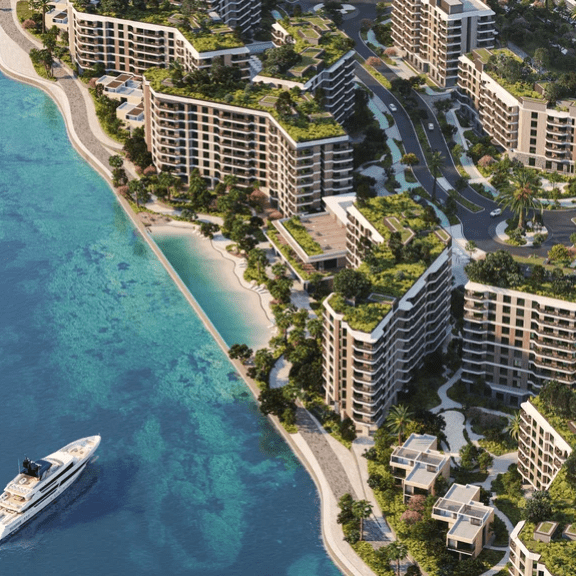Dubai is a melting pot where 90% of the residents are expats, and not just the super-rich, contrary to popular belief. The high demand for rental property suggests that Dubai attracts both foreigners looking for a city to invest in and a place to live. When moving to another country with one’s family, everyone seeks comfort and security. So is Dubai dangerous? Find the answer here and learn how millions of expats manage to coexist in this huge metropolis and what laws the city has in place to protect them.
Dubai in the Top City Safety Ranking
Dubai is one of the safest cities in the world. In international rankings, it is always listed close to the top in terms of safety. In the Middle East, Dubai loses out only to the capital of the UAE, Abu Dhabi.
Numbeo, the world’s largest database of user-contributed data on the cost of living and quality of life, ranks the UAE as the second safest country in the world, topped only by Qatar. In the current Numbeo ranking of the safest cities, Dubai comes fifth, with four of the seven emirates capitals in the top ten. So you can travel safely around the UAE.
New buildings in the UAE
Numbeo's Ranking of the Safest Cities in the World
- Abu Dhabi, the United Arab Emirates
- Doha, Qatar
- Taipei, Taiwan (China)
- Dubai, the United Arab Emirates
- Quebec, Canada
- Sharjah, the United Arab Emirates
- Bern, Switzerland
- Eskişehir, Turkey
- San Sebastian, Spain
Experts note that the crime rate in Dubai is low. Residents are not afraid of being robbed, assaulted or carjacked. The streets of Dubai are just as safe at night as they are during the day.
The Economist compiles a rating of cities based on safety every two years. In 2021, the pandemic year, Dubai ranked 13th in terms of health safety for residents and tourists.
Фото: Rumman Amin (Unsplash)
Crime Rates in Dubai
Dubai boasts low crime rates, including against individuals and property. This is due to the efficient work of the local police and the severe punishments. In addition to fines and imprisonment, sentences include flogging and the death penalty. It is difficult for criminals to escape justice as thousands of surveillance cameras with a facial recognition system watch the streets of Dubai round the clock. It is also impossible for anyone with a criminal past to become a resident because foreigners with a criminal record cannot obtain a UAE visa.
It is said that in Dubai you can leave your car unlocked and your laptop on a bench and they will not get stolen. Obviously, while you should not do that even in the safest of cities, this is a perfect illustration of how safe people feel in Dubai.
In the UAE, drug use is punishable by a prison sentence. The chances that your child will stumble upon a drug dealer on the street or anywhere else are practically zero. Still foreigners should be careful because a number of medications sold legally in other countries are classified as drugs in the UAE. In addition, we advise you not to try to buy a strong drug in a pharmacy without a prescription, as the pharmacist may call the police.
Road Safety in Dubai
UAE’s strict laws also apply to drivers. The speeding fines are significant: driving up to 20 km/h over the limit will cost you USD 85. You will find it hard to get away with such an offence as traffic cameras are literally everywhere.
The UAE has a system of "black points". If a driver is allotted 24 black points in a year, their licence will be suspended for three months. The second time this happens, the licence will be suspended for six months. The third time you reach the maximum, your licence will be suspended for a year and only returned to you after you pass a driving test.
Фото: Hassan Pasha (Unsplash)
This system applies to local driving licences and is implemented in conjunction with fines and other penalties. For example, failing to stop at a red light is punishable by a fine of USD 275, 12 black points and vehicle impoundment for 30 days.
Drink driving can lead to a fine of up to USD 8,000, 23 black points, vehicle impoundment for 90 days and three years in prison. It is considered one of the most serious road crimes in the UAE.
Healthcare in Dubai
TAs the UAE boasts high-quality healthcare, foreigners often come here for medical procedures, including childbirth. During the pandemic, the Emirates was the first country in the world to complete mass vaccination of the population, which allowed the authorities to open the borders to tourists as early as 2021.
The authorities emphasise the health of the State's residents. Every expat who comes here sees it for themselves. To get a long-term visa, you need to undergo a mandatory medical examination at one of the accredited clinics. Residency is not available to candidates suffering from any disease classified as a disease posing a risk to public health (HIV, tuberculosis, etc.).
All residents are required to take out medical insurance. It is illegal to stay in the country without insurance, and an expired policy results in serious penalties. You will have to pay for each month that it is overdue. Prices for insurance policies start at USD 150 for a basic, minimum plan. Insurance for expat employees of local companies is usually covered by the employer. In all other instances, expats have to buy it themselves.
Yas Golf Collection (Housearch)
An insurance policy for the elderly (over 60) costs 2 to 3 times as much. Until 2020, expats had to leave the country when they retired, but now the UAE offers a resident visa for pensioners with a monthly income starting at USD 4,100.
When buying a health insurance policy, please note that:
- Foreigners have to pay for all medical services. It is only free to call for an ambulance.
- For the first six months insurance companies do not pay for the treatment of chronic illnesses.
- Foreigners can only receive medical care in private clinics specified in the appendix to their insurance policy. If expats require the services of public hospitals (for example, to vaccinate a child), they must register for the issue of a Health Card. It is valid for a year, costs USD 85 and entitles you to a 50% discount on medical services. A foreigner can go to a public hospital without a card in case of emergency.
- Health insurance does not mean that you no longer have to pay for medical services. Under a standard policy, the policyholder pays 20% of the cost of a doctor’s appointment, if it does not exceed USD 136.
Is Dubai a Safe Place for Women?
The UAE prioritises the safety of women. Crimes against women can entail a punishment that is more severe than for any other crimes. In Dubai, women can do sports safely on the embankment, relax on beaches and walk around in casual clothes, women may not be disturbed or accosted on the street.
There are also women-only spaces: separate cars on metro trains, women’s taxis, the first seats on buses, and parking spaces. However, they are not required to use them and can use common ones instead. In some parks in Dubai, there are even hours when men are not allowed to enter.
Speaking of gender equality, female Emirati citizens can get higher education, hold seats in Parliament, and head ministries. As for foreign women, they are allowed to buy property and invest in business, and if female residents of the UAE have a monthly income of over AED 10,000 (USD 2,700), they can sponsor visas for their spouse and children.
At the same time, there are still some restrictions for women in Dubai. They may not walk outdoors in a bikini or sunbathe topless on the beach. Women in shorts and a T-shirt will not be allowed into state institutions and some restaurants. However, the same rules apply to men.
Photo: mostafa meraji (Unsplash)




